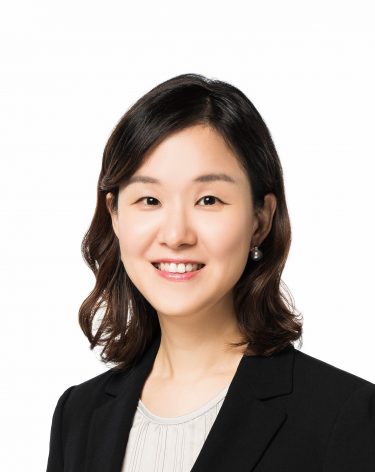September 29, 2022
Visiting Scholar: Q&A with Jung-Hwa Ha

The Evans School of Public Policy and Governance and the Center for Studies in Demography and Ecology (CSDE) welcome Professor Jung-Hwa Ha from the Department of Social Welfare at Seoul National University in South Korea, as a Visiting Scholar for the 2022-23 academic year. The Evans School found a few minutes to chat with Professor Ha in early September.
Evans School: Tell us a little about your areas of research expertise.
Jung-Hwa: My area of research is aging and health. My research examines how late-life transitions such as widowhood or a health decline affect older adults’ social and psychological well-being, and the extent to which various social and psychological factors moderate these relationships. I also conduct more practice-oriented research in the areas of end-of-life care, dementia care, and elder abuse. Recently I have engaged in a collaborative research project examining the needs of advance care planning for people with dementia to enhance the quality of their end-of-life care.
Evans School: Your current collaborative project sounds really interesting and important.
Jung-Hwa: I am excited. Now we are working to develop a coaching program for early dementia patients and their family caregivers in Korea to help them engage in advance care planning. My goal is to help these individuals not only think about their medical preferences in end-of-life care but also reflect on their values and preferences for what kind of care they would like to get and what makes their lives important when they lose cognitive abilities.
Evans School: How will the year at UW and the Evans School support your ongoing research program?
Jung-Hwa: I hope that my time at UW and the Evans School will open up my eyes and expand my horizons for future research in the field of aging and health. In particular, I would like to learn more about research conducted by UW scholars on the implications of technology for older adults and climate change for vulnerable populations.
Evans School: You trained in the U.S., have held faculty positions at top universities in the U.S. and in South Korea, and your work engages many different settings – how have those cross-cultural experiences shaped your scholarship and teaching?
Jung-Hwa: I am grateful that I had opportunities to study and work in the US. The time I spent here provided me with a lens to look at things from different perspectives and think about the cultural and social underpinnings underlying certain phenomena. However, I find many similarities in human nature, especially among older adults. For example, older adults in Korea and the US are both very much concerned about the well-being of their children and do not want to depend on them. They often express these concerns by saying “I don’t want to be a burden on my children.” What I find interesting is that the steps people can take to lessen the burden on their family varies across different societies. That is where social policy comes in. How can social policy or programs support older adults to be what they want to be? I try to tackle this question through my research and discussions in the classroom.
Evans School: Last question – what is on your Seattle “bucket list” while you are here with your family?
Jung-Hwa: To visit Mt. Rainier and to see the cherry blossoms on the UW Quad. I am also looking forward to spending time in the beautiful Pacific Northwest as much as I can.
Evans School: Sounds like you have some great plans. Hopefully there’ll be a day where the mountain is out and you can see the blossoms! Welcome to our community!